Mozambique: Severe weather alerts can now be sent by SMS to help people at risk
Less plastic, more fish formula tested on Mozambique Island – Photos
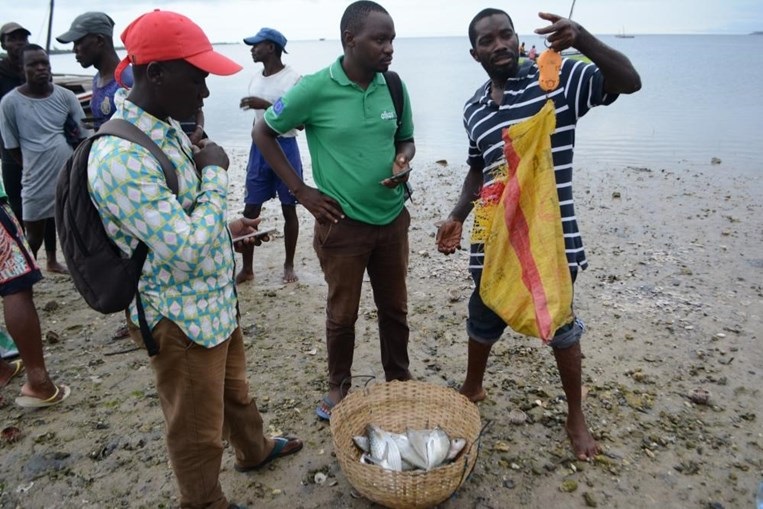
All photos: Lusa
Plastic pollution is one of the problems on Ilha de Moçambique, where the Portuguese discoverer Vasco da Gama arrived 525 years ago on his way to India and where the country’s first capital was established.
The local economy is centred on fishing and marine resources, and plastics are a threat to species, as well as being an aggression to oceans already under pressure due to climate change.
Bottles, caps and all sorts of plastic packaging are picked up on beaches by waste pickers or handed in by restaurants and shops, piling up at a municipal services yard in the centre of the island.
It’s here that a recycling workshop wants to change the course of this pollution story.
“Here we clean, separate the plastics and try to produce new pieces,” explains José Júnior, who is responsible for the recycling project implemented by the Portuguese non-governmental organisation (NGO) Oikos (in partnership with URB-África/UCCLA, among others), supported by Camões – Instituto da Cooperação e da Língua.
Specialised machinery grinds and moulds the plastic to produce mosaics, tiles, blocks and other pieces that a team of young people from the island perfects every day, now looking for buyers to make the workshop self-sustaining.
Word is spreading, and children turn up at the workshop with a handful of plastics to sell: today, it was Momade Mularanja, one of the recycling operators, evaluating the waste and handing over 20 meticais (just under 50 euro cents) to the group that went to hand them over.
“It’s a sign that the population is getting the idea” that plastic can be valued if it is removed from the environment and recycled, he said.
“There’s a lot of plastic stuff out there on the market. There are plastic wrappers, sugar and biscuits” and lots of children spreading them, complains Berta Eusebio, a health technician for the Ilha de Moçambique municipality, who wants to stop the risk that “plastic could end up on another continent”.
It’s a process that “will take time”, but José Júnior believes that if the solution is created in the community, it will be easier to “mobilise the population for a civic action” in which rubbish no longer ends up in the ground, but is recycled “without being a threat to the oceans”.
The workshop’s action fits into a strategy of preservation of the sea’s resources that includes projects with communities (with the support of Camões and Blue Ventures Conservation) to put an end to unbridled fishing – an activity so voracious these days that there are boats “that return to land with nothing”, says Dane de Almeida, one of Oikos’ community liaisons, responsible for marine conservation.
The projects are “trying to help the communities recover the fishing resources that are disappearing” through management measures that they themselves implement.
One crosses the stretch of sea that separates the island from the mainland to reach Cabaceira Pequena, a fishing village where a local management council has been set up, which is meeting with the maritime authorities under one of the largest trees in the settlement.
Living conditions are precarious, and there is a discussion about the preservation of the village’s greatest asset, fishing.
Under discussion is the establishment of closed zones, areas demarcated with buoys, where fishing is not allowed for a certain period of time to allow fish to reproduce rather than disappear.
“The message we try to get across is that you can’t take the little fish away,” says Fatima Momade, a community activist who, like the rest of the team, acknowledges that changing behaviour takes time.
Ossumane Abudu, head of the community fishing council, goes down to the beach and approaches the last boat of the day to arrive at Cabaceira.
Before returning home, he goes out to sea, a few kilometres away, to check the buoys marking one of the closed areas where he hopes no-one will be fishing in the coming months.
“We created this last year, and it worked because the fish that had disappeared came back. So this year we want to do it again,” with regulations and fines for those who transgress, he tells Lusa.
“Whoever enters and fishes is punished with a fine of up to 12,000 meticais”, about €177.
Manuel João of the maritime authority is monitoring the process.
Faced with the “scarcity of fish”, this seems to be the correct way forward, the one that “will make us happy”, he says, and in Cabaceira Pequena, happiness is synonymous with more fish, the centre of the entire local economy: with it, “everyone wins”.
It’s the residents “who decide what to do, we give technical support”, Dane explains, in a project that began with a diagnosis of the community and where complaints of the growing lack of fish came to the fore.
“There are more and more fishermen, 5,800 of them in this area, and we have to relieve the pressure”, along with respecting closed seasons and banning harmful techniques – like nets and cages so tight that they prevent the small animals from reaching breeding age.
Oikos proposes income alternatives and has supported women to open small businesses preparing food, as well as wanting to implement other projects like mangrove honey, with hives produced and installed by the community.
It is on a visit to Cabaceira Pequena that José Júnior rediscovers the plague of plastics.
Raúl Nato occupies one of the sandy streets with a mountain of plastics, rubbish he buys to resell, helped by a small army of children and young people who turn over and sort every piece.
From that and other communities, he sends everything to Nampula, the provincial capital, 200 kilometres away, where industrial units recycle the waste to make new utensils.
Raúl exchanges contacts with José, who explains to him that there is a new recycling workshop on the other side of the bay, thirsty for processing what he accumulates.
“Less plastic, more fish” is the formula he believes in to give a new and healthy lease of life to the island, whose history has always depended on what the sea has to offer.
Time and the population will dictate whether the new formula works.




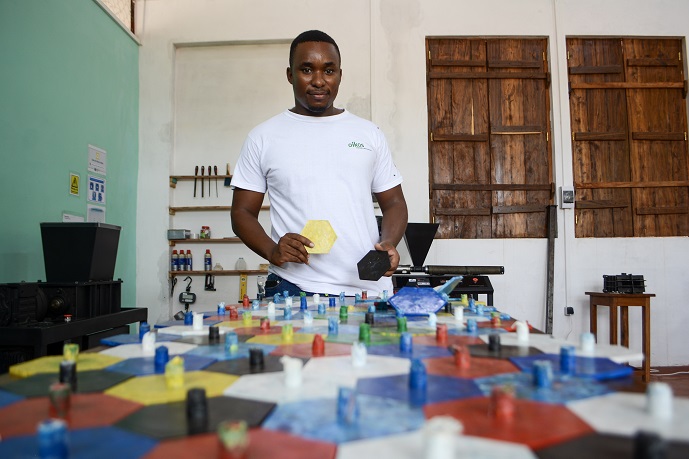



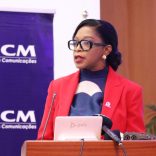
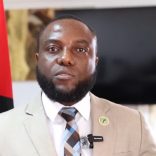
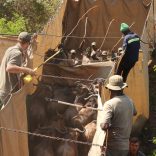
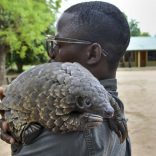
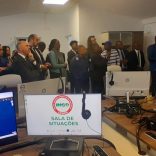





Leave a Reply
Be the First to Comment!
You must be logged in to post a comment.
You must be logged in to post a comment.